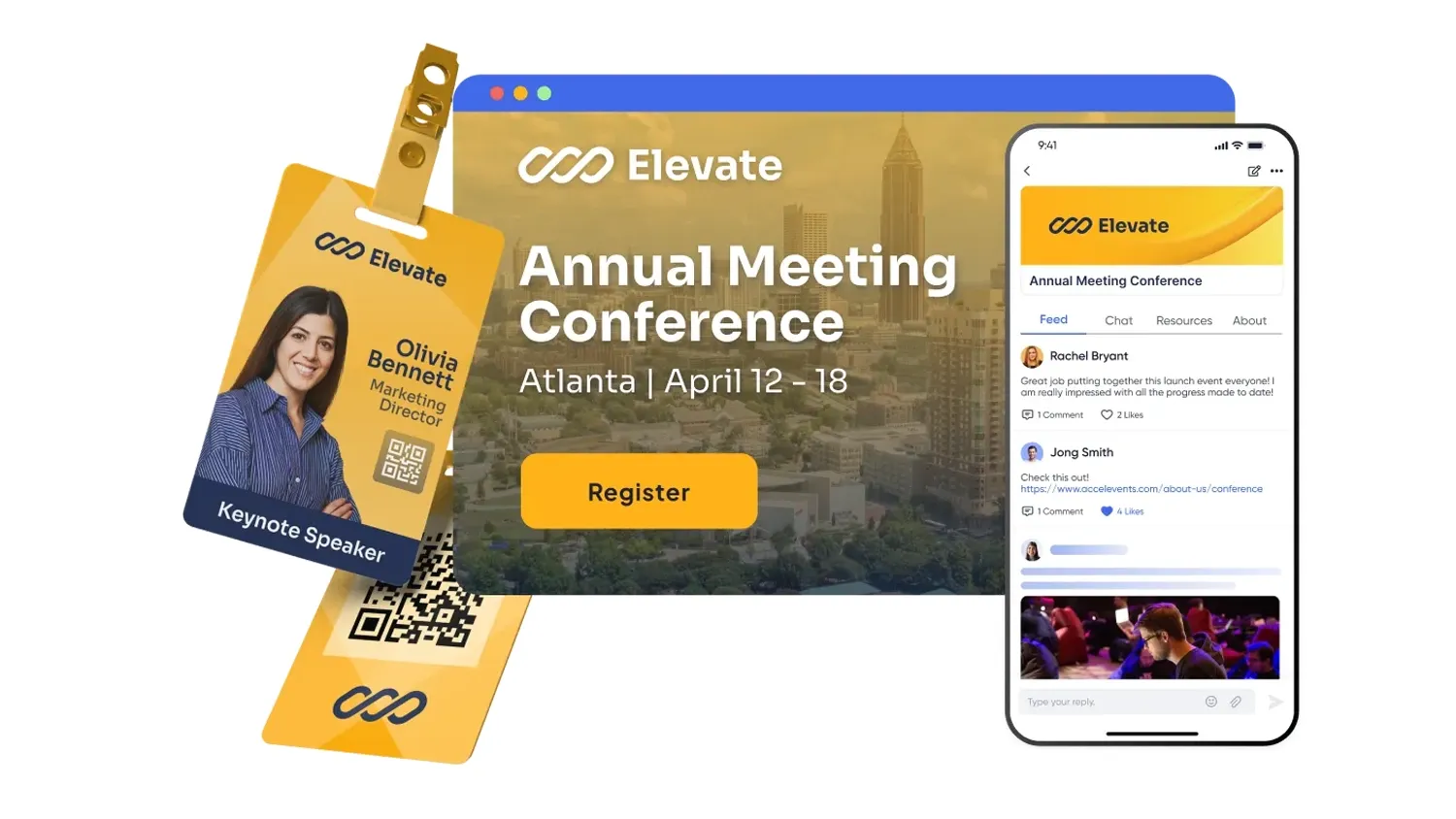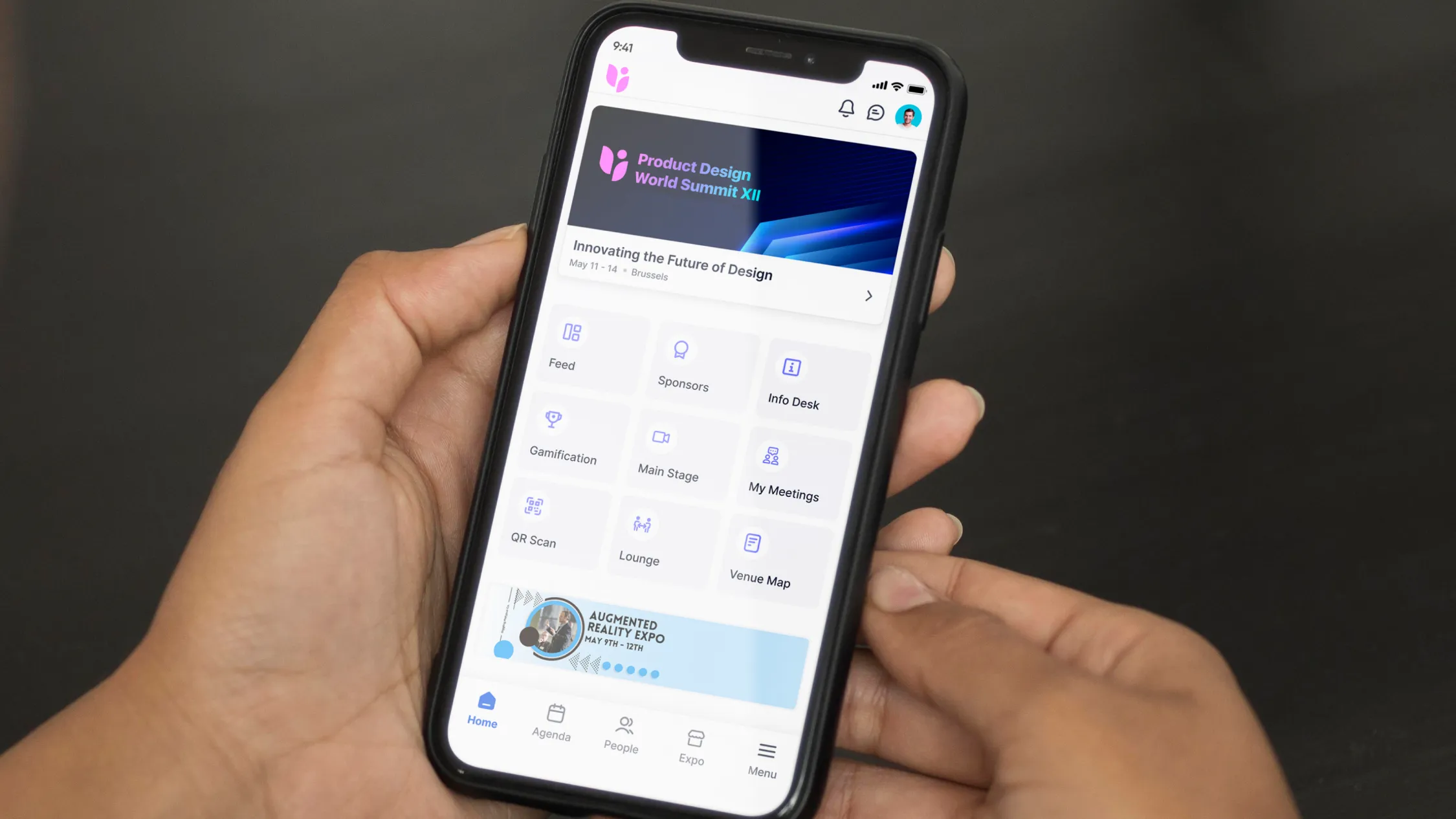Event Industry Trends: Why Events Will Become a Top Marketing Channel
The event industry is rapidly changing…Forgive us the platitude; you already knew that because, pretty much, you've been living it every day. The rise of virtual during the pandemic, the return of in-person events, the introduction of hybrid solutions, and now the threat of a recession – if anyone asks you to pivot one more time to adapt to yet another wave of unpleasant changes, you'd be forgiven for wanting to bite their head off. So, we won't go there.
Instead, we'll introduce a piece of good news: Companies are desperately trying to regain the attention of their customers, and with that, events are becoming a priority for marketers once again. And that smells like an opportunity to me. That's also what this article is about – opportunity. Read on to discover why events will gain importance as a marketing channel and how you can capitalize on that trend in 2023.
People, not companies, will drive marketing

We all know that over the past decade, the rise of social media and influencer marketing has shifted the focus from companies to individuals. As things stand now, attendees will be more likely to follow an influencer's recommendation than a company's marketing message.
In parallel, traditional digital marketing channels, such as paid search and paid social, have been steadily declining, not just because people don't trust those channels anymore. The cost per conversion became so prohibitive we were all mainly working to make Google and Facebook happy.
With the death of third-party data (goodbye cookies, we had a sweet relationship), layoffs became a dire reality for the former darlings of every marketing department - demand generation marketers and paid media professionals. Some are now trying to find new homes in the event tech space. I am guessing that the increased sophistication of event tech and data suddenly makes working as an event marketer much more attractive for these quantitatively oriented professionals.
First-party data is going to become a household term

These demand generation managers may have also recognized that events constitute a premier source of valuable first-party data, offering valuable insights into customer behavior and preferences. When properly harnessed, event data will drive not just lead qualification. It will also help marketers build lead profiles for a more targeted and personalized post-event follow-up.
Event data about people, their behaviors, and interests will also come in handy as we get flooded with AI-generated content, courtesy of ChatGPT. I pointed out in a recent article that Ai is great so long as we put it to the service of creating original content. However, I suspect that tools such as ChatGPT will be initially misused to mass-produce irrelevant content that satisfies SEO requirements, more out of ignorance than malicious intent. In the short term, we will all drown in a sea of irrelevant content of unprecedented proportions. For those of us trying to rise above the resulting chaos, events represent a double opportunity:
- First, events will be one of the few places where B2B professionals will find original thoughts and ideas delivered by (gasp!) humans. From now on, forget Google Search – if you want new fresh ideas, head to the next relevant event for your industry!
- Secondly, companies capturing event data will then be able to use it to try to add value to their customers beyond their products. How? Through personalized, high-quality original content served at the right time in the right format.
It's up to us marketers to transform events into a core lead generation channel and an essential part of the marketing mix. The marketing ecosystem is primed for it…
Meanwhile, event platforms will scramble to integrate AI to make event data even more actionable – I am here for it and eager to build that data into my marketing stack.
Event formats will be based on the type of event

So now that I have, hopefully, maybe convinced you that events are the best thing since sliced bread in the new world of marketing, you'll probably wonder how you should structure these events to best connect to your audiences. Here's a thought: Your event format will be based on the type of event you're planning. For example, in-person events will be focused on experiences and networking, while virtual formats will be the norm for content-heavy events.
Event organizers will realize that people attend in-person events to network and participate in interactive workshops, not just to listen to keynote presentations. As a result, these events will become smaller, more interactive, and tailored to the needs of the attendees.
On the other hand, educational content, which is typically very content-heavy, will shift more towards the virtual sphere. It's just a better format for delivering that type of information. Learning something new is difficult to squeeze into people's lives, now more than ever, when most of us struggle to accomplish more with fewer resources. Thus, we try to squeeze in time to learn and grow in short bursts, at odd hours, from anywhere. That's the ideal scenario for a virtual setting, which is also one of the key reasons why Learning Management Systems (LMS) and Learning Experience Platforms (LXP or LEP) have surged in popularity over recent years.
Event programs will be measured holistically, not individually

Once you build events into a bonafide marketing channel, they will no longer be measured on a per-event basis but on an annual basis, focusing on measuring overall channel ROI. Think of it this way: With increased strategic importance comes increased responsibility. In the past, you may or may not have felt pressure to deliver value for each event. But now, the scrutiny will shift to your entire event program and its sizable impact on the marketing mix. If you're hit with budget cuts right now, it may be a good idea to outline what you can or cannot deliver with the resources at hand to set the right expectations.
What's also important to note is that the current emphasis on metrics extends to your audiences. Given the current economic climate, companies will require evidence of the value of attending B2B events. Employees will have to prepare the pertinent business case to justify spending time at events. For B2C events, this line of thinking still stands, as individuals need to justify event attendance to themselves and their families.
Influencers will be the #1 channel for event promotion

When info about your event comes from a reliable outside source, people are more likely to believe it than if it comes straight from you. Simply put, people trust people, particularly now, in a world where the noise created by AI is threatening to dilute the impact of traditional marketing channels such as websites and blogs.
Unsurprisingly, influencer marketing, once exclusively a consumer marketing trend, has now taken over the event world. We're betting on this becoming the top channel for event promotion. FOMO (Fear of Missing Out) will be the biggest driver of attendance, which influencers can skillfully tap into without appearing overly promotional.
Overall, traditional media companies will struggle to compete with the persuasive power of influencers, thought leaders, and content creators. Event consultants and agencies will also add their voices to the mix, making it more critical than ever for event planners like you to forge strategic alliances that amplify your reach and spread the word about your event.
Again, to look at this positively. Even if your budgets and headcount are limited, build up a network of influencers your audience trusts. You can do this formally through an influencer marketing platform such as Upfluence or informally by creating a network of allies and business acquaintances.
Event planners will aim to streamline their technology stack

Who wants to deal with a host of expensive software solutions to manage their events? Nobody raising their metaphorical hand? Thought so. Working with multiple disjointed event software solutions to churn out events will not only give you a headache, but you'll spend too much time and money on your tech with little to show for it. This is particularly true if you need to consolidate that precious event data and move it to your sales and marketing teams for a fast and effective follow-up. That's precisely why we foresee that companies will consolidate their event tech stack. Successful event planners will want to spend time where it matters, and that, when people crave authentic content and authentic human connection, is the attendee experience.
Not all event tech platforms are prepared to offer a comprehensive solution for busy event planners, so the event tech vendor landscape will reduce as a result, with point solutions merging into platforms. As our world becomes more mobile-focused, event apps will be the norm and part of that comprehensive feature package. Accessibility and data security will remain top priorities as the world moves towards greater levels of compliance.
2023 paves the way for more authentic marketing

The event industry is changing... I said that already, didn't I? But seriously, 2023 promises to be an exciting year for event organizers, marketers, and attendees. As consumers are inundated by AI-generated content, we'll all go back to trusting the people we know, as it should be.
As marketers, we'll have to take the time to build or rebuild a trusting relationship with our target audience. Events will be the conduit to achieve this at scale. What's more, data from these events will give us the information we need to supply our trusting audiences with relevant, original content they actually WANT to consume.
Successful companies will recognize the need to move towards greater authenticity. They will take a step back from polluting their audiences with aggressive paid advertising and mass-produced content assets and focus on what matters, making the world a better place for their customers. It's high time we moved in this direction, and I, for one, couldn't be happier about it!








